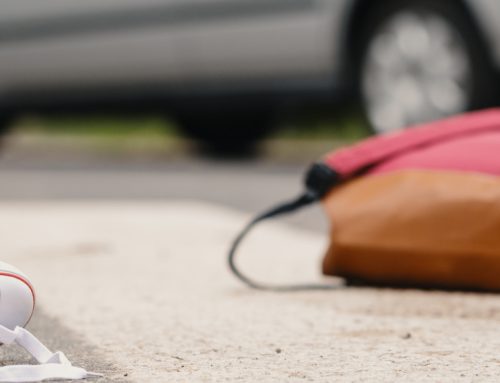Police officers pull over drivers every day. Whether you run a red light, were speeding, or were texting and driving, an officer can pull you over if they have reasonable articulable suspicion. You may feel stressed and anxious after being pulled over by a police officer. These feelings may heighten if you are asked to step out of the vehicle to allow the officer to search your car.
You may wonder why the officer is searching your car.
Can a police officer in Maryland search your car if they have a reason to?
The answer is yes. A police officer can legally search your car if they have probable cause.
The Fourth Amendment protects drivers from unlawful vehicle searches without a valid reason for the search, warrant, the driver’s permission, and probable cause. If a police officer pulls you over and searches your vehicle without your permission, probable cause, or a search warrant, they are violating your rights protected under the Fourth Amendment.
A police officer has the legal right to search your vehicle if they have a warrant signed by a judge that authorizes the search. If a police officer shows an affidavit to a judicial officer, a judge can issue a search warrant. From here, a police officer can search a vehicle.
If your vehicle is searched due to an issued warrant, the warrant must describe exactly what is being searched for. There must be sufficient details in the warrant and label the items that will be seized. If you were illegally searched, contact the Law Offices of McKenzie and Tehrani immediately.
What does Legitimate Expectation of Privacy mean?
The Fourth Amendment protects one from an unlawful search and seizure of a vehicle. With this right comes a legitimate expectation of privacy.
If you are pulled over by a cop and they ask to search your vehicle, you may wonder what the reason is. A police officer can legally search your vehicle if they see a dangerous or illegal item in plain sight.
You may believe that this is a violation of your privacy, but it is not. Any dangerous or illegal; item that an officer sees in the vehicle while being lawfully present can give them the ability to search the car.
Can a police officer perform a warrantless search in Maryland?
A police officer can search your vehicle under four circumstances:
- The driver gave the police officer their consent to search the vehicle. Remember, you have the option of refusing the search.
- The police officer has probable cause and believes that there could be evidence of a crime in the vehicle.
- The police officer believes that searching the vehicle is necessary as there may be a dangerous item in the car.
- The driver has been arrested in the past and the search has a relation to the arrest.
If a police officer believes that they have probable cause, are in danger, or have your consent, they are legally allowed to search the vehicle. Typically, a police officer pulling a driver over for going a few miles over the speed limit will not be asked for their permission to search the vehicle.
Can the police search an impounded car in Maryland?
Yes, if the police have towed and impounded your vehicle, they have the right to search the car. The police have the right to choose the extent to which they search the vehicle if it is impounded.
During the search of an impounded vehicle, the police will most likely search small compartments and boxes that are open. The police do not need a particular reason to search the impounded car. An impounded vehicle can be searched for anything as simple as a violation of driving laws or a parking violation or as serious as theft or use of weapons. Although the police have the right to search an impounded car, they are not able to tow an impounded car to another location to search.
If you were arrested due to an unlawful search without probable cause, you will probably be frustrated and confused. You also may not be aware that what has occurred is a violation of your human rights.
A police search can happen anywhere and at any time. An officer may believe that they have probable cause, but you may believe that they are violating your right to the fourth amendment. If you or a loved one are unlawfully searched, contact us today. We will help you fight your case.
La Policía Puede Registrar Su Automóvil en Maryland?
Los oficiales de policía detienen a los conductores todos los días. Ya sea que se pasó un semáforo en rojo, estaba acelerando o estaba enviando mensajes de texto mientras conducía, un oficial puede detenerlo si tiene una sospecha articulable razonable. Puede sentirse estresado y ansioso después de que un oficial de policía lo detenga. Estos sentimientos pueden aumentar si se le pide que salga del vehículo para permitir que el oficial registre su automóvil.
Quizás se pregunte por qué el oficial está registrando su automóvil.
¿Puede un oficial de policía en Maryland registrar su automóvil si tiene una razón para hacerlo?
La respuesta es sí. Un oficial de policía puede registrar legalmente su automóvil si tiene una causa probable.
La Cuarta Enmienda protege a los conductores de registros ilegales de vehículos sin una razón válida para el registro, orden judicial, permiso del conductor y causa probable. Si un oficial de policía lo detiene y registra su vehículo sin su permiso, causa probable o una orden de registro, está violando sus derechos protegidos por la Cuarta Enmienda.
Un oficial de policía tiene el derecho legal de registrar su vehículo si tiene una orden firmada por un juez que autorice el registro. Si un oficial de policía muestra una declaración jurada a un oficial judicial, un juez puede emitir una orden de allanamiento. Desde aquí, un oficial de policía puede registrar un vehículo.
Si su vehículo es registrado debido a una orden emitida, la orden debe describir exactamente lo que se busca. Debe haber suficientes detalles en la orden y etiquetar los artículos que serán incautados. Si lo registraron ilegalmente, comuníquese con las Oficinas Legales de McKenzie y Tehrani de inmediato.
¿Qué significa expectativa legítima de privacidad?
La Cuarta Enmienda protege a uno de una búsqueda e incautación ilegal de un vehículo. Con este derecho viene una expectativa legítima de privacidad.
Si un policía lo detiene y le piden que registre su vehículo, es posible que se pregunte cuál es el motivo. Un oficial de policía puede registrar legalmente su vehículo si ve un artículo peligroso o ilegal a simple vista.
Puede creer que esto es una violación de su privacidad, pero no lo es. Cualquier peligroso o ilegal; artículo que un oficial ve en el vehículo mientras está legalmente presente puede darle la capacidad de registrar el automóvil.
¿Puede un oficial de policía realizar una búsqueda sin orden judicial en Maryland?
Un oficial de policía puede registrar su vehículo en cuatro circunstancias:
- El conductor dio su consentimiento al oficial de policía para registrar el vehículo. Recuerda, tienes la opción de rechazar la búsqueda.
- El oficial de policía tiene causa probable y cree que podría haber evidencia de un crimen en el vehículo.
- El oficial de policía cree que es necesario registrar el vehículo ya que puede haber un artículo peligroso en el automóvil.
- El conductor ha sido arrestado en el pasado y la búsqueda tiene relación con el arresto.
Si un oficial de policía cree que tiene una causa probable, está en peligro o tiene su consentimiento, está legalmente autorizado a registrar el vehículo. Por lo general, a un oficial de policía que detiene a un conductor por exceder el límite de velocidad unas cuantas millas no se le pedirá permiso para registrar el vehículo.
¿Puede la policía registrar un automóvil incautado en Maryland?
Sí, si la policía ha remolcado e incautado su vehículo, tiene derecho a registrarlo. La policía tiene derecho a elegir el grado de registro del vehículo en caso de incautación.
Durante el registro de un vehículo incautado, lo más probable es que la policía registre pequeños compartimentos y cajas que estén abiertas. La policía no necesita una razón particular para registrar el automóvil incautado. Un vehículo incautado puede ser registrado por cualquier cosa tan simple como una infracción de las leyes de tránsito o una infracción de estacionamiento o tan grave como el robo o el uso de armas. Aunque la policía tiene derecho a registrar un automóvil confiscado, no puede remolcar un automóvil confiscado a otro lugar para buscar.
Si lo arrestaron debido a un registro ilegal sin causa probable, probablemente se sienta frustrado y confundido. Es posible que tampoco sepa que lo que ha ocurrido es una violación de sus derechos humanos.
Una búsqueda policial puede ocurrir en cualquier lugar y en cualquier momento. Un oficial puede creer que tiene una causa probable, pero usted puede creer que está violando su derecho a la cuarta enmienda. Si usted o un ser querido son registrados ilegalmente, contáctenos hoy. Le ayudaremos a pelear su caso.





